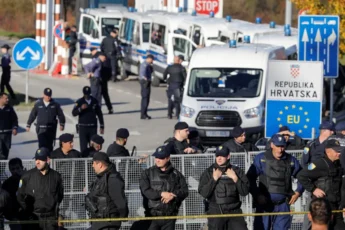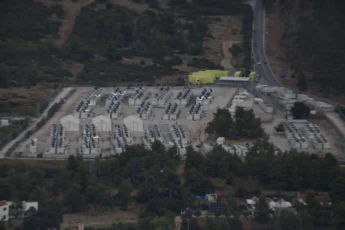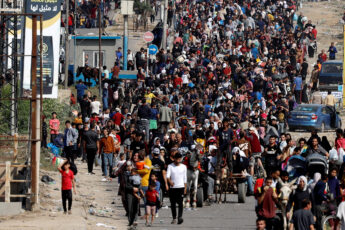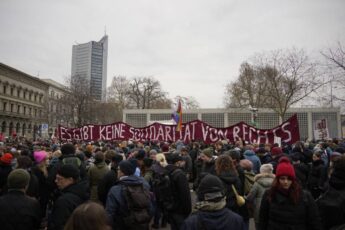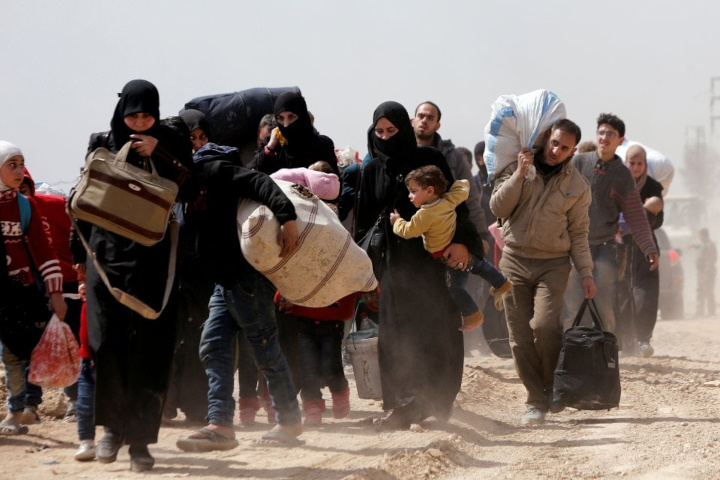
TRANSNATIONAL MIGRANTS COORDINATION
The right to asylum has long been under attack, and entry into Europe through decrees that temporarily authorize quotas of labor seems to be increasingly the only way to avoid militarized borders, and unstable boats in the Mediterranean, mountains, and forests where cold threatens survival. While the seizure of power by Hayat Tahrir al-Sham fighters in Syria and the overthrow of Assad’s brutal, dictatorial regime highlights the fragility of the right to asylum, they compel us to rethink our struggles in this new scenario. The celebrations of Syrian refugees, who had fled en masse from the civil war since 2015, were soon confronted by Europe’s immediate attempt to make them bear the costs of political instability and wars in the Middle East. Several European countries, including France, Germany, Austria and Italy announced they would suspend the processing of asylum applications for Syrian citizens. Bulgaria had already suspended its agreement with Syria to accept a quota of refugees. Austria even declared it was preparing a “repatriation and expulsion program” for Syrians who had already been granted asylum, first for those with criminal records and then for the ones being a burden on the welfare system.
We know that many Syrian migrants hold residency permits that cannot be revoked, and we know that many perform essential jobs in their host countries. For governments like Germany’s (especially in the wake of the terrorist attacks in Solingen and Magdeburg), much of this seems to be political propaganda, aimed at frightening migrants and winking at racist voters. Yet the EU’s restriction of the right to asylum remains a real and long-standing issue. Since the outbreak of the war in Ukraine and the escalation of global conflict, including the genocide in Palestine and the wars in Lebanon, Yemen, and Syria, the risk of a sharp increase of refugees seeking freedom and safety through asylum was met in Europe with stricter agreements to curb asylum rights and filter migrants’ entry.
It came as little surprise that the European Commission approved Poland’s controversial plan to introduce a time-limited suspension of the right to asylum using the migration flows encouraged by Russia and Belarus against its eastern borders as a pretext to implement brutal and racist policies. This endorsement extends to any Member State facing a similar situation, including Finland, which has introduced an emergency law enabling border guards to push migrants back without processing asylum claims. Thus, while Europe wages an increasingly fierce war against migrants, the latter are being recruited into armies at war with promises of citizenship, as in Israel and Russia, or are the first to be abandoned without shelter under the bombs, as happened to Syrian and African care workers in Lebanon.
In April 2024, the European Pact on Migration and Asylum was approved, ushering in detention centers for migrants, advanced screening mechanisms, swift rejection of asylum applications, and rapid deportations back to the hands of dictators and torturers. The Pact was a political reaction to migrants who, on a large scale, have benefitted from asylum to overcome movement restrictions, remain in Europe, and obtain the documents they need to rebuild their lives. National governments and European institutions have so far responded to their quest for freedom with policies of planned deaths at sea and deportations.
In countries like Greece, even survivors of the Pylos shipwreck – where a fishing boat carrying approximately 650 people sank, leaving only 104 survivors – have been refused asylum. Italy has tried to establish detention centers for asylum seekers in Albania, where, according to the Cutro decree passed last year, migrants from safe countries can be detained and subjected to accelerated procedures, leading to quick rejections. This model has not been successful so far because it has faced legal and practical limitations, but its primary goal remains to instill fear among migrants and send a clear racist message to all. Still, it is gaining more and more support among European leaders. After introducing the new Border Security Bill that approaches migration as a counter-terror issue, British Prime Minister Starmer expressed interest in the Italian model. In Germany, while Scholz has already signed agreements with Somalia to repatriate irregular migrants, deportations to countries such as Croatia, Bulgaria, Bosnia, Nigeria, Gambia, and Iraq are increasing. The current German political crisis could worsen the situation, as the AfD aims to implement a mass deportation agenda, while CDU and CSU already announced an acceleration of irregular migrants’ repatriations. Meanwhile, Denmark has intensified border controls, and Sweden has increased funding for migrant repatriations.
Following the political shift to the right, European states attempt to address the widespread dissatisfaction stemming from austerity policies, reductions in public spending, and growing military expenditures by exacerbating internal social hierarchies and thereby showing white locals that there is someone – the migrants – who is worse off. The necessity of migrant labor leads to selectively opening the borders for specific, temporary labor quotas. As Transnational Migrants Coordination, we have denounced the limitation of asylum rights, which has been used by states to establish differences and hierarchies among migrants. At the same time, we oppose the ongoing attacks on the right to asylum, as they seek to worsen migrants’ living and working conditions, restrict their mobility, and, most critically, enforce deterrence policies across EU member states. We do not accept the regularization of exploitation as the sole legal pathway into Europe and the burden this global war imposes on migrant men and women. We stand with Syrians, Kurds, and Palestinians who have fled bombs, torture, prisons, and genocidal violence, and with Ukrainians and Russians who desert the army. We stand with those who continue to cross the Mediterranean, the Atlantic Ocean, the Balkans, Central and South America and Eastern Europe to seek a better life. We stand with migrants who, through their movement across borders, challenge war and the blockades imposed by the frontlines, as well as Europe’s nationalist and security-driven policies. We stand with migrants fighting against exploitation and the threat of deportation. Even though, regardless of the tightening of Europe’s border regime, migrants will continue to move and challenge it, now more than ever, we must raise our voices and unite our struggles for the freedom of movement and freedom from wars and European racism. If you want to join the struggle initiated by the Transnational Migrants Coordination, follow us on social media to find out when our next online assembly will take place!


